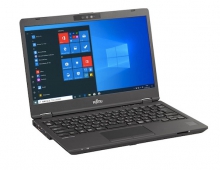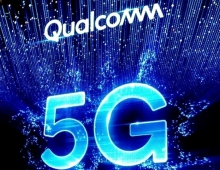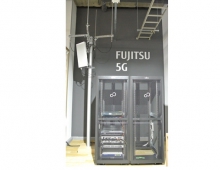
Fujitsu Launches Power-Management IC for Ultra-Mobile PCs
Fujitsu today announced the development of a one-chip system power management IC for ultra-mobile PCs (UMPCs).
The new device, the MB39C308, is designed to supply power to the system, memory, and chipsets in UMPCs. Sample shipments will begin in November 2007.
The MB39C308 complies with the upcoming version of the Low Power Intel Architecture (LPIA) specification proposed by Intel as a low-power platform for UMPCs. The MB39C308 also meets the next-generation LPIA platform requirement of a six-channel DC/DC converter control circuit, while integrating other peripheral components onto the chip. This enables the power management system to be reduced to less than one-third the size of other similar products. The increased efficiency of the new devices power supply is a major factor in extending the operating time of the UMPC battery.
The MB39C308 was jointly developed with Fujitsu VLSI Limited, utilizing Laterally Diffused MOS (LDMOS) technology. By using an LDMOS technology and revising the transistor structure, the MB39C308 supplies power from a lithium-ion battery at high-efficiency rates without dispersion. The DC/DC converter control circuits incorporated in the chip generate voltages across six different channels and support power for memory, the chipset and external systems such as wireless LAN, as required in the 2008 version of the LPIA platform.
Also, a switching FET integrated in the MB39C308 can drive a current of 1.5 Amps to 3.5 Amps. This benefits the memory and chipset, reducing the number of peripheral components and the size of the power management system. In addition, by optimizing components to comply with the LPIA platform and embedding them into the power management IC, it becomes possible to eliminate the requirement to set voltage or current when designing power management systems.
The MB39C308 complies with the upcoming version of the Low Power Intel Architecture (LPIA) specification proposed by Intel as a low-power platform for UMPCs. The MB39C308 also meets the next-generation LPIA platform requirement of a six-channel DC/DC converter control circuit, while integrating other peripheral components onto the chip. This enables the power management system to be reduced to less than one-third the size of other similar products. The increased efficiency of the new devices power supply is a major factor in extending the operating time of the UMPC battery.
The MB39C308 was jointly developed with Fujitsu VLSI Limited, utilizing Laterally Diffused MOS (LDMOS) technology. By using an LDMOS technology and revising the transistor structure, the MB39C308 supplies power from a lithium-ion battery at high-efficiency rates without dispersion. The DC/DC converter control circuits incorporated in the chip generate voltages across six different channels and support power for memory, the chipset and external systems such as wireless LAN, as required in the 2008 version of the LPIA platform.
Also, a switching FET integrated in the MB39C308 can drive a current of 1.5 Amps to 3.5 Amps. This benefits the memory and chipset, reducing the number of peripheral components and the size of the power management system. In addition, by optimizing components to comply with the LPIA platform and embedding them into the power management IC, it becomes possible to eliminate the requirement to set voltage or current when designing power management systems.





















